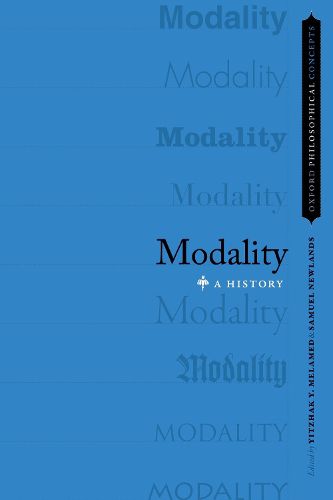Readings Newsletter
Become a Readings Member to make your shopping experience even easier.
Sign in or sign up for free!
You’re not far away from qualifying for FREE standard shipping within Australia
You’ve qualified for FREE standard shipping within Australia
The cart is loading…






Modality: A History provides readers a sweeping study of the history of philosophical work on modal concepts. Everyday discourse is saturated with appeals to what might be the case or to what must be true or to what cannot happen. Possibility, necessity, and impossibility are modal terms, and philosophers have long wondered how to best understand them. This volume traces the history of some of the most prominent and important contributions to our understanding of possibility and necessity over the past two and half millennia of western philosophy, from ancient Greek philosophers through current debates in the 21st century. Over the course of nine chapters from prominent scholars, this volume traces a history of modal theorizing that begins with extended discussions of Aristotle and the Stoics. Several chapters discuss insights and disagreements among Latin, Arabic, and Jewish medieval scholastics, such as Al-Ghazali, Scotus, and Crescas. Three chapters center on early modern philosophers, whose modal views were deeply shaped by this conceptual inheritance but also departed from it in significant ways: Descartes, Malebranche, Locke, Spinoza, Leibniz, and Hume. Kant and Hegel's modal contributions are presented in their own chapter, and another chapter traces the legacy of Kant's account on early-to-mid 20th century modal views, including Husserl, Heidegger, Russell, and Quine. The revival of modal metaphysics in the more recent work of Kripke, Marcus, and Lewis has led to a new flourishing of modal theories, including in recent debates among neo-Aristotelians, as the final chapter illustrates. Although modal concepts are interesting and important on their own, theories of modality often intersect with other significant philosophical topics, such as time, freedom, and God. Modal concepts also extend beyond metaphysics. To illustrate the role of modality in other domains, several small-scale studies, or Reflections, are dispersed among these main chapters on modality in cosmology, religion, music, literature, and logic. Readers will learn how a seemingly timeless and changeless cluster of modal concepts have undergone significant revisions and enjoy a rich developmental history.
$9.00 standard shipping within Australia
FREE standard shipping within Australia for orders over $100.00
Express & International shipping calculated at checkout
Modality: A History provides readers a sweeping study of the history of philosophical work on modal concepts. Everyday discourse is saturated with appeals to what might be the case or to what must be true or to what cannot happen. Possibility, necessity, and impossibility are modal terms, and philosophers have long wondered how to best understand them. This volume traces the history of some of the most prominent and important contributions to our understanding of possibility and necessity over the past two and half millennia of western philosophy, from ancient Greek philosophers through current debates in the 21st century. Over the course of nine chapters from prominent scholars, this volume traces a history of modal theorizing that begins with extended discussions of Aristotle and the Stoics. Several chapters discuss insights and disagreements among Latin, Arabic, and Jewish medieval scholastics, such as Al-Ghazali, Scotus, and Crescas. Three chapters center on early modern philosophers, whose modal views were deeply shaped by this conceptual inheritance but also departed from it in significant ways: Descartes, Malebranche, Locke, Spinoza, Leibniz, and Hume. Kant and Hegel's modal contributions are presented in their own chapter, and another chapter traces the legacy of Kant's account on early-to-mid 20th century modal views, including Husserl, Heidegger, Russell, and Quine. The revival of modal metaphysics in the more recent work of Kripke, Marcus, and Lewis has led to a new flourishing of modal theories, including in recent debates among neo-Aristotelians, as the final chapter illustrates. Although modal concepts are interesting and important on their own, theories of modality often intersect with other significant philosophical topics, such as time, freedom, and God. Modal concepts also extend beyond metaphysics. To illustrate the role of modality in other domains, several small-scale studies, or Reflections, are dispersed among these main chapters on modality in cosmology, religion, music, literature, and logic. Readers will learn how a seemingly timeless and changeless cluster of modal concepts have undergone significant revisions and enjoy a rich developmental history.